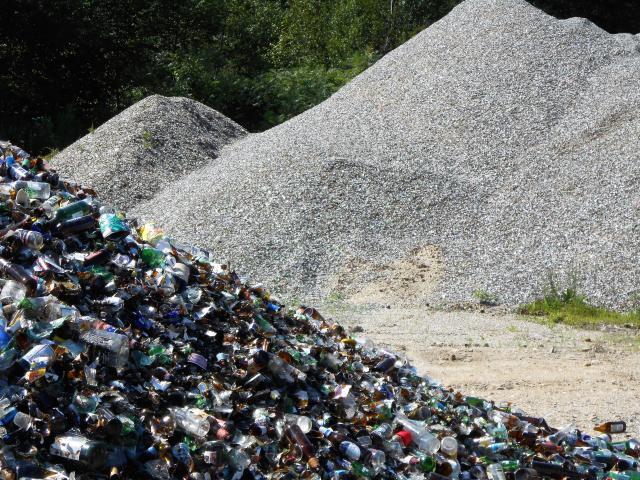Processed Glass Aggregate Specifications and Approved Uses by State - New England
Summary of Specifications and Approved Uses of Processed Glass Aggregate in New England - Environmental and Transportation Agencies
Wondering how the specifications and uses for processed glass aggregate (crushed recycled glass) vary from state to state in New England? Did you know that the requirements not only differ by state, but also by state agency?
The chart below summarizes the gradation and contamination requirements, as well as the approves uses, for processed glass aggregate for the environmental protection agency and the transportation agency for each of the New England states.
State | Environmental Agency - Graduation and Contamination Requirements | Environmental Agency - Approved Uses | Transportation Agency - Gradation and Contamination Requirements | Transportation Agency - Approved Uses | Mandatory Glass Recycling* |
| Governs municipal and private use: including in municipal and private roads | Governs state use: including in state highways | ||||
MA |
|
|
|
| Yes |
NH |
|
|
|
| No |
VT |
|
|
|
| Yes |
CT |
|
|
|
| Yes |
ME |
|
|
|
| No |
RI |
|
|
|
| Yes |
Massachusetts | Department of Environmental Protection PGA Specifications: Website Contact: Greg Cooper, Division Director – BAW Business Compliance & Recycling, 617-292-5988 | Department of Transportation PGA Specifications (found in supplemental specifications): Website Contact: Daniel N. Digilio, Civil Engineer – Quality Assurance, Materials and Research daniel.digilio@dot.state.ma.us MassDOTQCML@dot.state.ma.us (general inquiries) |
New Hampshire | Department of Environmental Services PGA Specifications: Website Contact: New Hampshire Department of Environmental Services Solid Waste Bureau 603-271-2925 | Department of Transportation PGA Specifications (found in highway design specifications): Website Contact: Deirdre Nash, Assistant Research Engineer (603) 271-8995 |
Vermont | Department of Environmental Conservation PGA Specifications: Website Contact: Barb Schwendtner, Solid Waste Compliance Chief, Waste Management & Prevention Division | Agency of Transportation (VTrans) PGA Specifications (found in Standard Specifications): Website Contact: Nick Van Den Berg, P.E. Materials Manager, Highway Division Construction & Materials Bureau |
| Connecticut | Department of Energy & Environmental Protection PGA Specifications: Website | Department of Transportation PGA Specifications: Website Contact: David Kilpatrick, Connecticut Department of Transportation |
*Municipal Disposal Ban or Mandatory Recycling for Glass - Resource: https://nerc.org/documents/disposal_bans_mandatory_recycling_united_states.pdf
